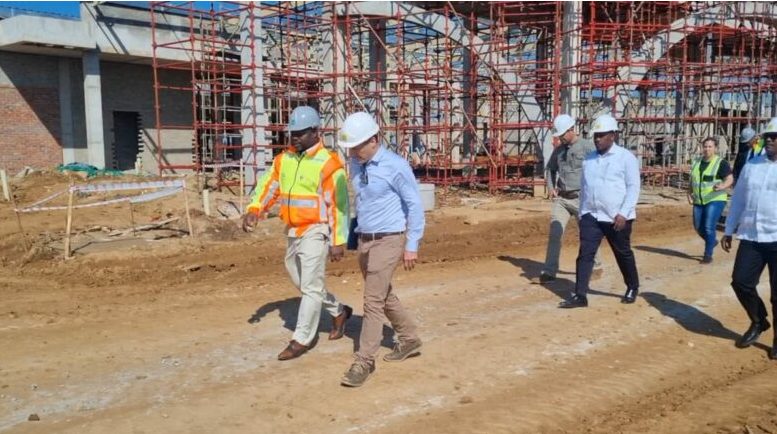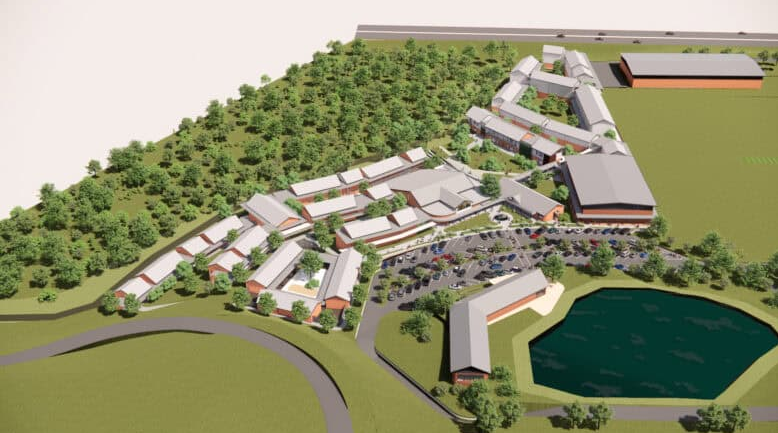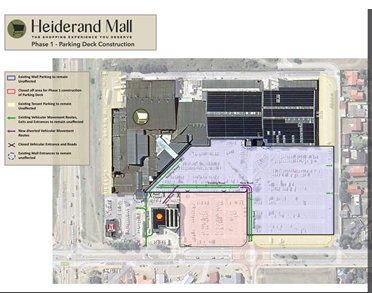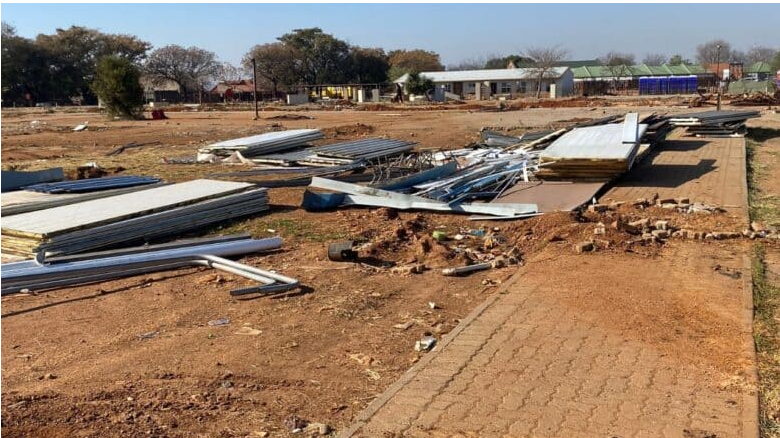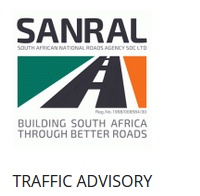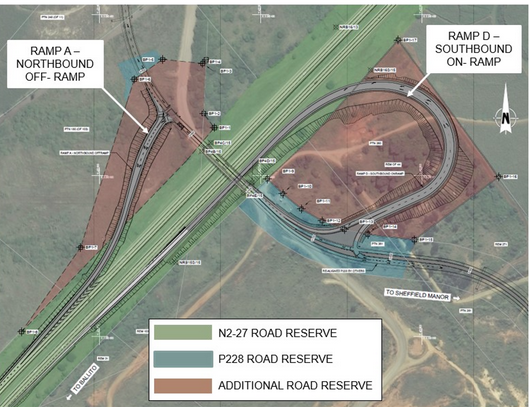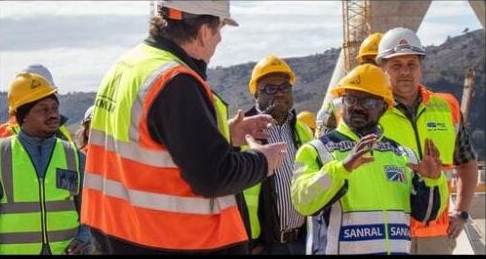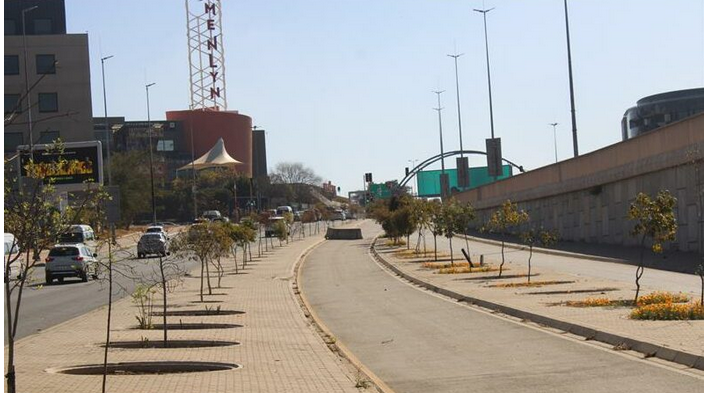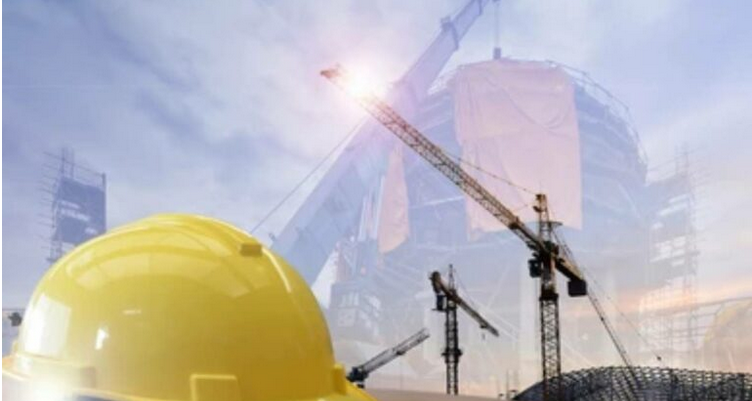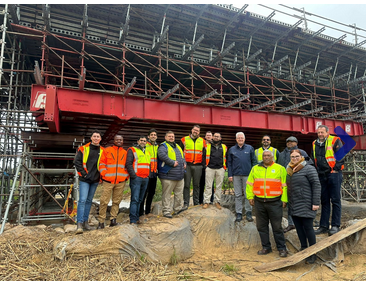South Africa’s big smart city and bullet train promises

Advertising
30-05-2022
Read : 1096 times
My Broadband
Source
When it comes to buzzwords and empty promises, “smart cities” and “bullet trains” are favourites among South African politicians.
During his 2019 state of the nation address, President Cyril Ramaphosa said he dreamt of a South Africa with an entirely new city with skyscrapers, schools, universities, hospitals, and factories.
He also said South Africans should imagine bullet trains passing through Johannesburg as they travelled from Cape Town to Musina, and stopping in East London on their way back from Durban.
In his 2020 address, Ramaphosa announced the first stage of the Greater Lanseria Master Plan — a modern urban development around the Lanseria airport using various smart technologies.
Plans for the so-called “Lanseria Smart City”, initially known as “Cradle City”, had been under consideration since 2007.
Construction of the entire smart city project is expected to take 25 years.
Crosspoint has partnered with the Public Investment Corporation to develop a 90-hectare mixed-use commercial precinct that will form part of the project.
The City of Johannesburg adopted the provincial government’s plan for the city in May 2021.
However, the latest update on this development from the Gauteng Department of Economic Development suggests progress has been slow.
MEC Parks Tau said the groundwork was being laid for the development’s planning, with the Development Bank of Southern Africa (DBSA) appointed as the implementing agent for the project.
The DBSA is set to embark on roadshows in June to draw investors to the development.
Below is the latest progress on some of the other smart cities the government has punted and the plans for a high-speed train network.
Nkosi City — Possible construction from June
Announced in February 2022, Nkosi City is poised to be a unique agricity with urban farms built near the western border of the Kruger National Park.
Developer Dovetail Properties said the R8-billion project could start construction as early as June 2022, as they had already obtained all the necessary government approvals.
It will encompass 3,471 houses and apartments, 14 schools, a college, two training centres, a hospital, clinic, high-street mixed-use offices, government buildings, retail space, and a filling station, among various other facilities and amenities.
Mooikloof Mega City — Under construction
Balwin Properties’ R84-billion Mooikloof Mega City in Pretoria East is planned to be the largest housing project in the country yet.
Construction on the first phase of the development is underway, with the entire project set to be completed by 2030.
It will include 50,000 residential units and numerous retail and office buildings, and will be built with green principles in mind.
One possible hurdle it will have to overcome is its electricity supply.
Eskom and the City of Tshwane are currently fighting it out for the right to distribute power to the development.
African Coastal Smart City — Seeking investors
Eastern Cape premier Oscar Mabuyane revealed that work was underway to develop a new smart city in the province during his state of the province address in February.
That came after cooperative governance minister Nkosazana Dlamini-Zuma presented a plan for the smart city during an ANC NEC lekgotla in September 2021.
The city will be developed on the Wild Coast between Port St Johns in the Eastern Cape and Margate in KwaZulu-Natal.
Very little detail is known about the project, but Mabuyane said there were already investors who had expressed an interest in the area.
Joburg-Durban bullet train
Although several politicians have separately mentioned bullet trains coming to South Africa, they all seem to refer to a possible development between Johannesburg and Durban.
Promises of the first high-speed rail (HSR) network in South Africa came from transport director-general Alec Moemi in May 2020.
Moemi said that a framework for an HSR network had already been developed and implemented, with a five-year development target.
Transport minister Fikile Mbalula recently gazetted South Africa’s National Rail Policy White Paper, which forms the foundation for establishing HSR corridors.
Deputy transport director-general Ngwako Makaepea said the government was currently looking at the Durban-Johannesburg route as a lucrative possibility for high-speed rail, as it could compete with low-cost airlines.
While the government will fully fund the project, China has indicated it would potentially invest in the project.
The country has several high-speed trains in operation, including the Shanghai magnetic levitation (maglev) train that can reach speeds of up to 431km/h.
It is also developing a new model that will supposedly be capable of hitting 600km/h, just 2km/h shy of the world’s fastest train, the Japanese L0 Series Maglev.
At 600km/h, it would take less than an hour to travel from Johannesburg to Durban using this technology.
Recent News
Here are recent news articles from the Building and Construction Industry.
Have you signed up for your free copy yet?
